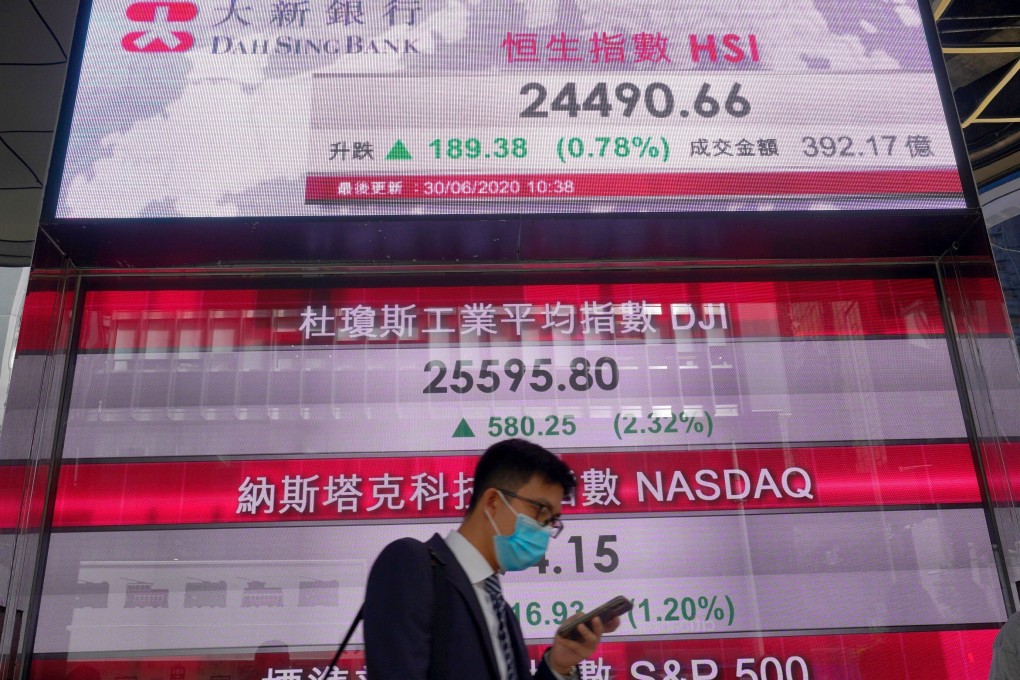Hong Kong, China markets slide as concerns rise about overheated stocks, cases of coronavirus growing in US
- Macau casino stocks shoot up as Guangdong province eases travel restrictions that have clobbered gambling traffic
- Hot stocks like Tencent and Alibaba see profit taking after huge recent surge

Hong Kong and mainland markets slid, as concerns mount that some stocks may be overheated and the pace of economic recovery in the US – the world’s largest economy – is threatened by a surge in Covid-19 cases.
The Hang Seng Index fell 1.1 per cent to 25,477.89 on Tuesday, with losses led by information technology and communication services stocks.
A rally of late, including in new economy stocks, propelled the Hang Seng into a bull market last week, and Alan Li, portfolio manager at Atta Capital, said the declines Tuesday were due to profit taking.
High-flying Geely Automobile fell 5 per cent to HK$18.10, after rising in seven of the previous eight sessions. Investors have been giving China auto stocks a fresh look as the latest data from June signalled recovering sales after the worst of the coronavirus and the sector remains comparatively cheap.
Galaxy Entertainment advanced 6.1 per cent to HK$53.95, after shooting up as much as 11.1 per cent, while Sands China jumped as much as 8.9 per cent before closing ahead by 5 per cent at HK$32.35.